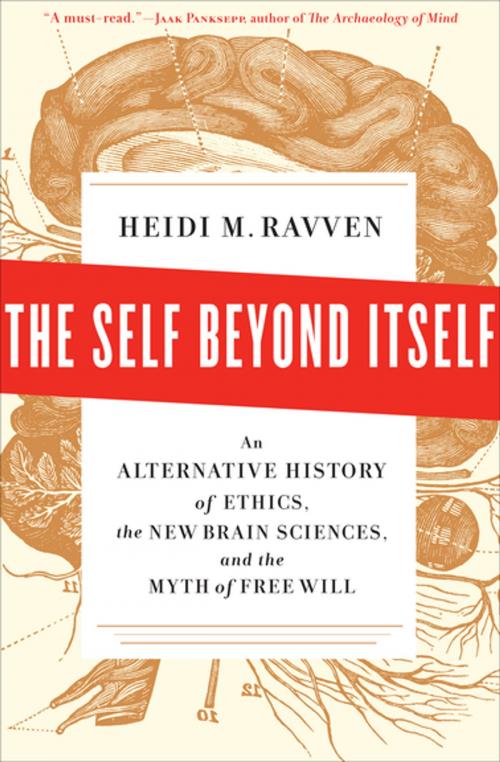The Self Beyond Itself
An Alternative History of Ethics, the New Brain Sciences, and the Myth of Free Will
Nonfiction, Religion & Spirituality, Philosophy, Free Will & Determinism, Ethics & Moral Philosophy, Science & Nature, Science, Biological Sciences| Author: | Heidi M. Ravven | ISBN: | 9781595588005 |
| Publisher: | The New Press | Publication: | September 16, 2014 |
| Imprint: | The New Press | Language: | English |
| Author: | Heidi M. Ravven |
| ISBN: | 9781595588005 |
| Publisher: | The New Press |
| Publication: | September 16, 2014 |
| Imprint: | The New Press |
| Language: | English |
“Intertwines history, philosophy, and science . . . A powerful challenge to conventional notions of individual responsibility” (Publishers Weekly).
Few concepts are more unshakable in our culture than free will, the idea that individuals are fundamentally in control of the decisions they make, good or bad. And yet the latest research about how the brain functions seems to point in the opposite direction . . .
In a work of breathtaking intellectual sweep and erudition, Heidi M. Ravven offers a riveting and accessible review of cutting-edge neuroscientific research into the brain’s capacity for decision-making—from “mirror” neurons and “self-mapping” to surprising new understandings of group psychology. The Self Beyond Itself also introduces readers to a rich, alternative philosophical tradition of ethics, rooted in the writing of Baruch Spinoza, that finds uncanny confirmation in modern science.
Illustrating the results of today’s research with real-life examples, taking readers from elementary school classrooms to Nazi concentration camps, Ravven demonstrates that it is possible to build a theory of ethics that doesn’t rely on free will yet still holds both individuals and groups responsible for the decisions that help create a good society. The Self Beyond Itself is that rare book that injects new ideas into an old debate—and “an important contribution to the development of our thinking about morality” (Washington Independent Review of Books).
“An intellectual hand-grenade . . . A magisterial survey of how contemporary neuroscience supports a vision of human morality which puts it squarely on the same plane as other natural phenomena.” —William D. Casebeer, author of Natural Ethical Facts
“Intertwines history, philosophy, and science . . . A powerful challenge to conventional notions of individual responsibility” (Publishers Weekly).
Few concepts are more unshakable in our culture than free will, the idea that individuals are fundamentally in control of the decisions they make, good or bad. And yet the latest research about how the brain functions seems to point in the opposite direction . . .
In a work of breathtaking intellectual sweep and erudition, Heidi M. Ravven offers a riveting and accessible review of cutting-edge neuroscientific research into the brain’s capacity for decision-making—from “mirror” neurons and “self-mapping” to surprising new understandings of group psychology. The Self Beyond Itself also introduces readers to a rich, alternative philosophical tradition of ethics, rooted in the writing of Baruch Spinoza, that finds uncanny confirmation in modern science.
Illustrating the results of today’s research with real-life examples, taking readers from elementary school classrooms to Nazi concentration camps, Ravven demonstrates that it is possible to build a theory of ethics that doesn’t rely on free will yet still holds both individuals and groups responsible for the decisions that help create a good society. The Self Beyond Itself is that rare book that injects new ideas into an old debate—and “an important contribution to the development of our thinking about morality” (Washington Independent Review of Books).
“An intellectual hand-grenade . . . A magisterial survey of how contemporary neuroscience supports a vision of human morality which puts it squarely on the same plane as other natural phenomena.” —William D. Casebeer, author of Natural Ethical Facts















